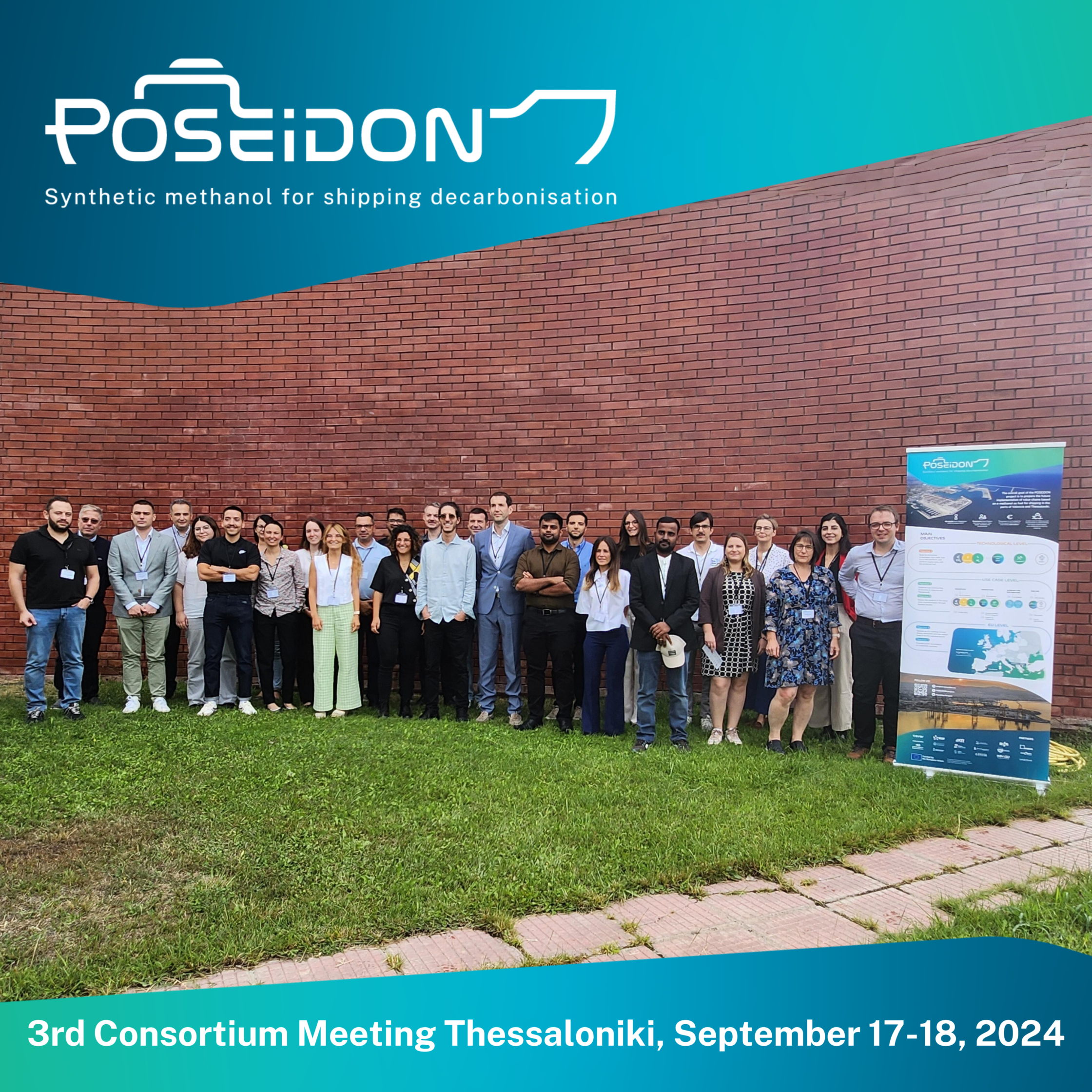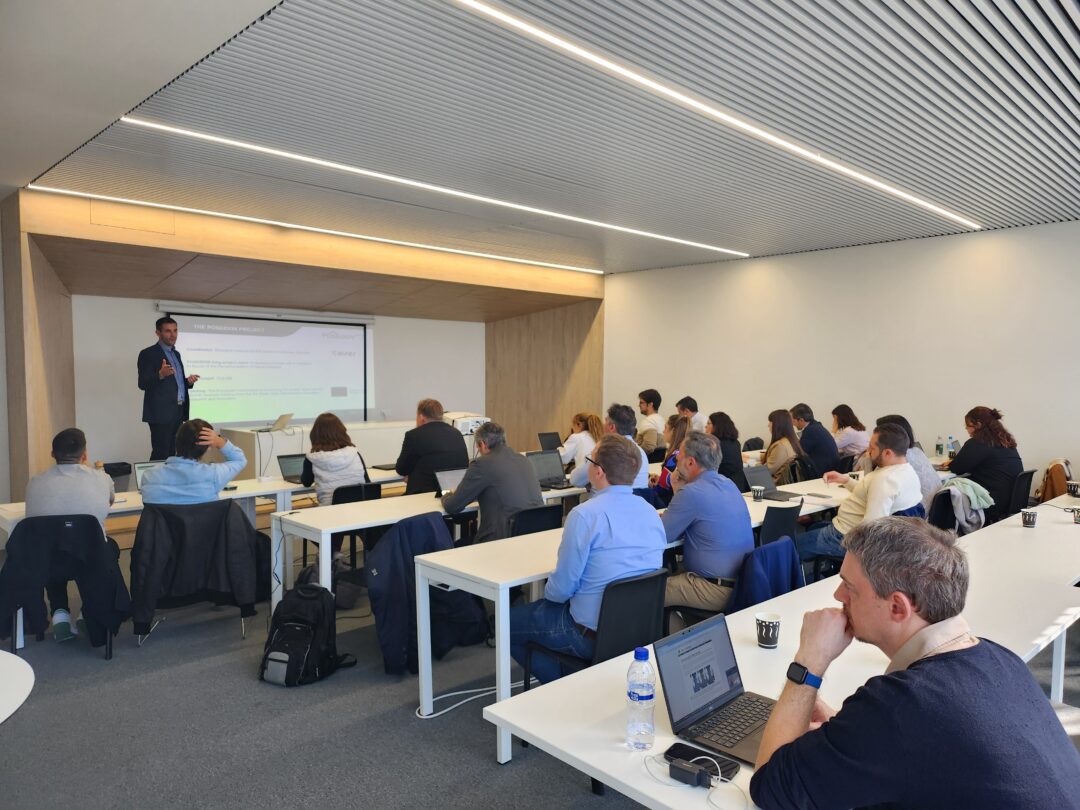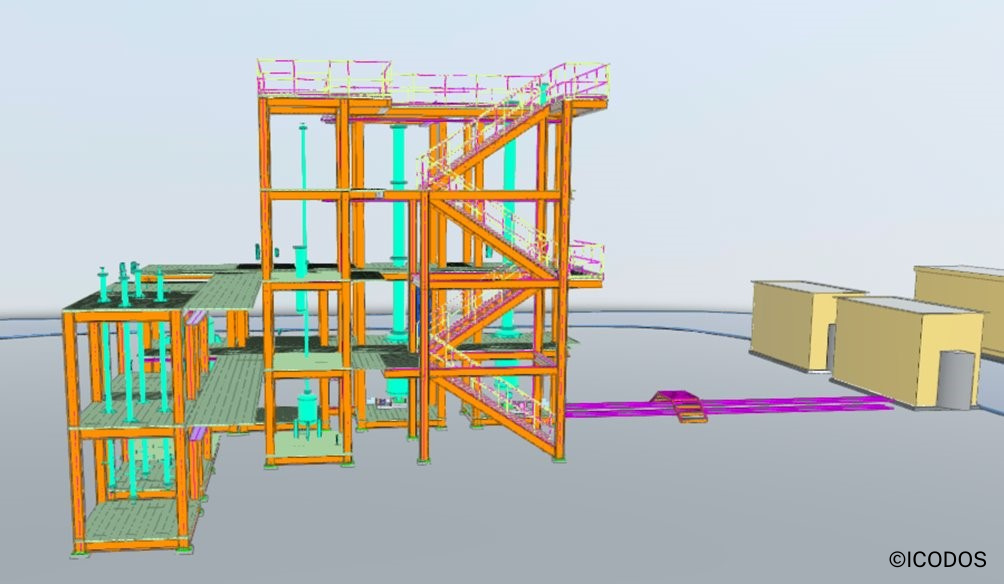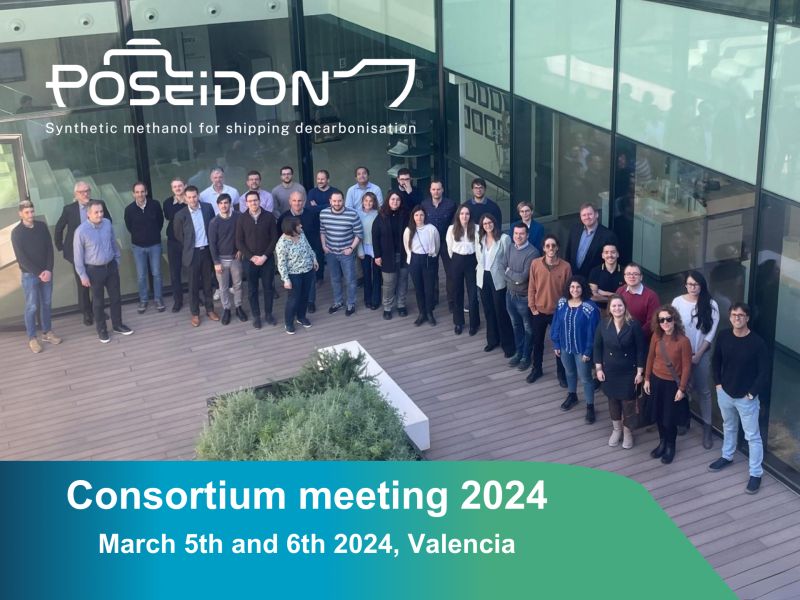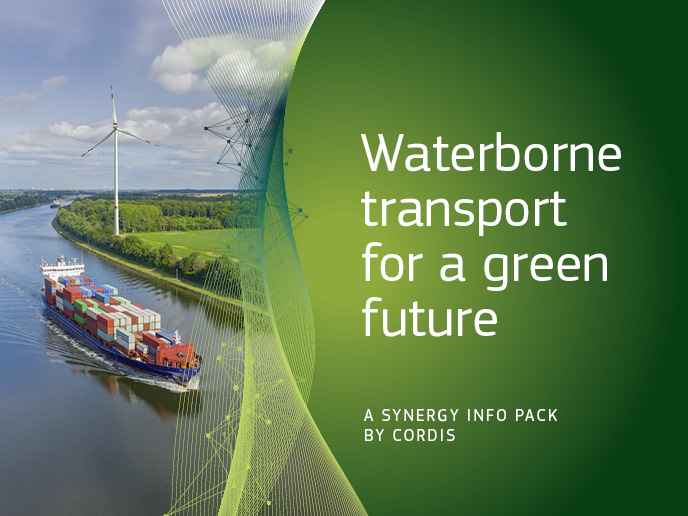Karlsruhe, Germany – September 25, 2024 – The POSEIDON project, funded by the European Union’s Horizon Europe Research and Innovation Program, proudly announces the release of its second press release, marking a year of progress in the quest to decarbonize naval transport using synthetic methanol.
Over the past year, the POSEIDON project has made remarkable strides in mapping the e-methanol value chain, establishing vibrant Communities of Practice (COPs) in key European ports, and designing an innovative pilot plant for e-methanol production. These milestones are crucial steps towards achieving a sustainable and carbon-neutral future for maritime transport.
Mapping the E-Methanol Value Chain
One of the cornerstone achievements of the POSEIDON project has been the comprehensive mapping of the e-methanol value chain. This intricate process, initiated during the project’s kick-off meeting in Karlsruhe, involved a series of collaborative workshops with stakeholders from Greece and Spain. The result is a detailed framework that outlines the production, distribution, and utilization of e-methanol, ensuring all partners have a unified understanding to drive the project forward.
Empowering maritime decarbonization: Communities of Practice
To foster public acceptance and ensure the long-term success of the POSEIDON project, local Communities of Practice (COPs) have been established in the ports of Valencia and Thessaloniki. These COPs bring together local project partners, industrial stakeholders, and public authorities to collaborate on implementing new value chains based on e-methanol. The COPs serve as platforms for open discussion, learning, and capacity building, with activities designed to co-create research results and validate project outcomes.
Innovative e-methanol pilot plant
At the heart of the POSEIDON project’s demonstration activities is the construction of a cutting-edge e-methanol pilot plant. Designed by ICODOS with support from KIT, this prototype plant will produce 750 liters of renewable e-methanol per day. The plant features advanced CO2 capture and methanol synthesis technologies, significantly reducing energy requirements and operational costs. Rigorous testing will be conducted at EDF’s Power-to-X test platform near Paris, with the synthetic fuel being used for engine tests and a methanol-powered boat operating on the Baltic Sea.
Looking Ahead
As the POSEIDON project moves into its second year, the focus will be on completing the detailed engineering of the pilot plant, initiating construction, and continuing to engage with stakeholders through the COPs. The project is set to play a pivotal role in the EU’s efforts to reduce greenhouse gas emissions from the maritime sector and promote the use of renewable fuels.
Discover the full press release here.

